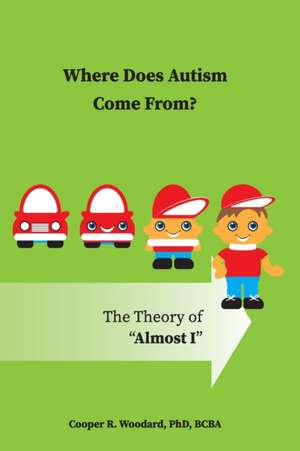Where Does Autism Come From? The Theory of "Almost I"
Autor Cooper R. Woodarden Limba Engleză Paperback – 14 dec 2020
Preț: 153.88 lei
Nou
Puncte Express: 231
Preț estimativ în valută:
29.45€ • 30.61$ • 24.40£
29.45€ • 30.61$ • 24.40£
Carte tipărită la comandă
Livrare economică 04-18 februarie 25
Preluare comenzi: 021 569.72.76
Specificații
ISBN-13: 9780578760667
ISBN-10: 0578760665
Pagini: 200
Dimensiuni: 140 x 210 x 11 mm
Greutate: 0.23 kg
Editura: Armour Books
ISBN-10: 0578760665
Pagini: 200
Dimensiuni: 140 x 210 x 11 mm
Greutate: 0.23 kg
Editura: Armour Books
Notă biografică
Cooper R. Woodard, PhD, has been working in the field of developmental disabilities for the past 30 years. He came to work at the Groden Center in 2002 as the Clinical Director at the school, and is currently Chief Clinical Officer of the program. Dr. Woodard has many years of experience in the field of autism, working with children, adolescents, and adults with presentations of this disorder across the spectrum. His training ranges from object relations to behavioral psychology, which provided the knowledge base for much of his work. Dr. Woodard's research areas have included the application of positive psychology concepts to persons with autism, the use of Dextromethorphan as a treatment of behavioral symptoms associated with autism, and sensory sensitivity in autism. He created the only scale that currently exists that assesses positive character strengths in persons with developmental disabilities (ASPeCT-DD), and has a number of publications in the positve psychology area of courage. He has been an adjunct professor at Wheaton College in Norton, MA, and the University of Rhode Island. Most recently, he has focused on a novel theory of how autism may development as a result of altered identification with objects and people. This theory, entitled the Dynamic Behavior Theory of Autism (DBTA) suggests that autism stems from an early impairment in the ability to meta-represent or "think about."
